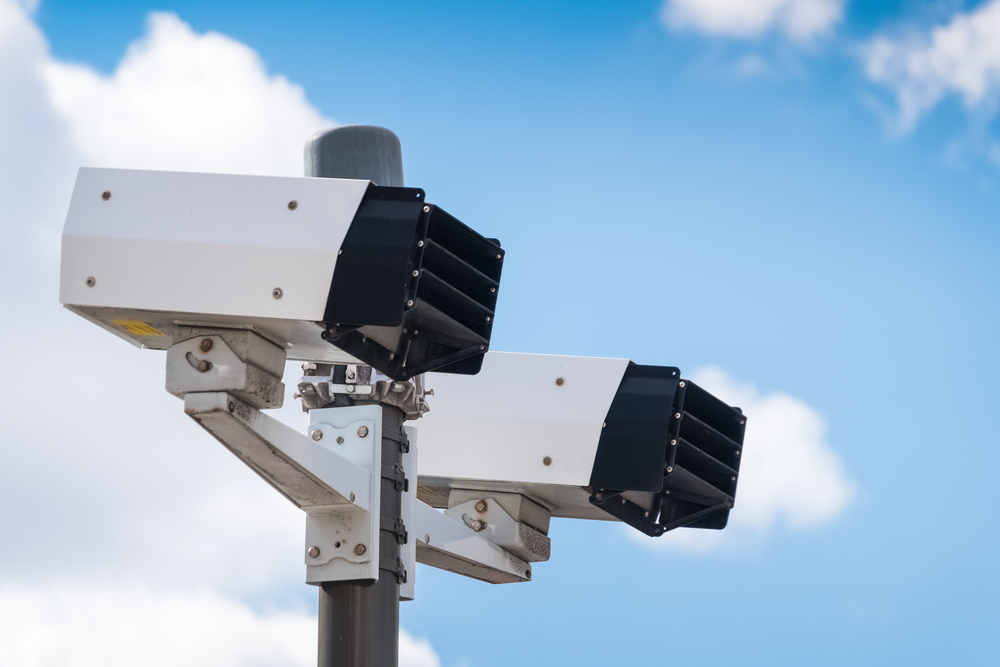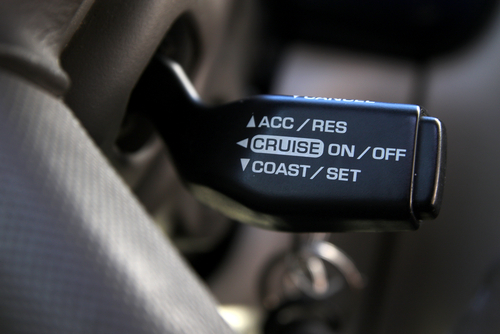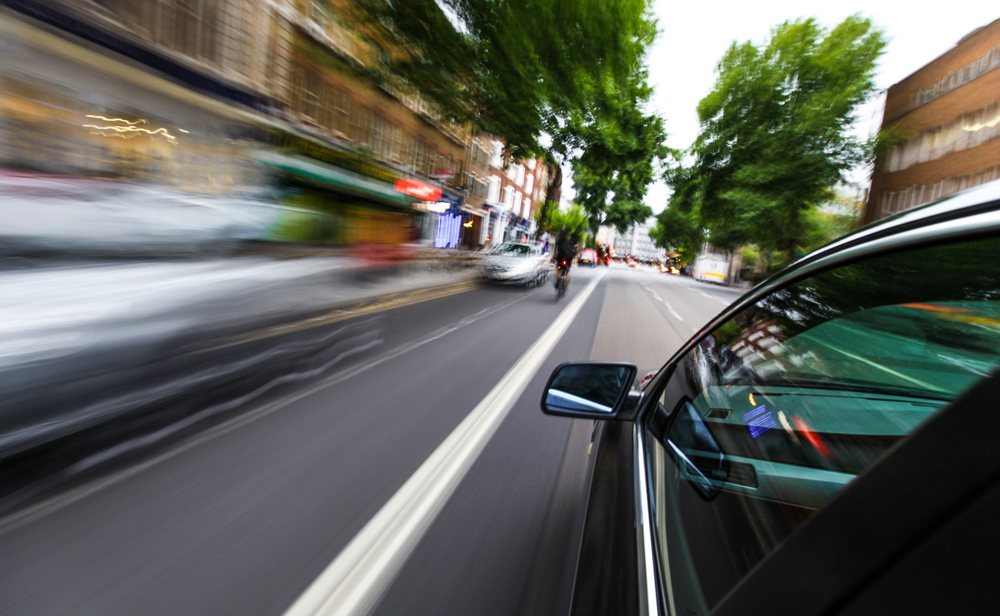Speeding fines and tickets – explained
Speeding tickets and fines are one of most common forms of penalty for drivers in the UK. Should you contest them? Can you avoid them altogether? Learn more from our comprehensive guide.
Speed cameras are designed to encourage safer roads within the UK and are used as a reliable resource by the government and police when it comes to enforcing speed limits. But they can be used catch drivers out if they are found breaching the set limits.
It’s worth learning about the consequences of speeding in the UK, because penalties can quickly become costly. Remember that violating limits can be punishable with either a penalty notice, costly speeding tickets and fines, penalty points on your licence, or a combination of these.
From larger vehicles, to cars and bikes, speeding limits apply to all models, makes and classes of vehicles. Drivers should familiarise themselves with the consequences of speeding, how penalties are enforced, and whether it’s contestable.
Contents
How do speeding tickets work?
What are the different types of speed camera in the UK?
How much is a speeding ticket or fine?
What happens after you’ve been prosecuted for speeding?
Speeding convictions for new drivers
Minimum speed limits and driving too slowly
What do you get for speeding on a motorway?
When is a speeding fine contestable?
How do speeding tickets work in Scotland?
Tips for obeying the speed limit
How do speeding tickets work?
Driving in excess of the established speed limit in the UK is considered illegal and punishable with a conviction, such as fines and penalties. You can be caught out by either a police officer, a speed camera, or stationary police vans.
In committing a driving offence, you will be convicted by photographic evidence as well as a time and location of the offence. Modern speed technology can quickly and efficiently capture drivers in violation of basic speeding laws.
If caught, you could be convicted with any of the following:
- You receive a verbal warning from an officer, which is more common when stopped by a patrol car.
- You may receive a costly penalty.
- You may be asked to attend, and pay for, a speeding-awareness course to display an obedience with, and understanding for, road safety.
- In harsher scenarios, and depending on your conviction, you may be prosecuted.
What happens if you’re caught by a speed camera?
According to the UK Government, speeding convictions will be issued within 14 days of the violation, which will include:
- Notice of Intended Prosecution (NIP)
- Section 172 notice
You will be given 28 days to return the Section 172 and identify the vehicle’s driver at the moment of an alleged offence. Any ignored notices could result in a court hearing.
What are the different types of speed camera in the UK?
Speed cameras are the most common tool for enforcing road safety laws, such as speed limits. By laws, speed cameras will be painted yellow to signpost to drivers that road speeds are being monitored within that area.
Typically fixed in place, certain speed cameras rely on yellow markings on the road to trigger a photograph. You will more likely spot these in slower limits or near pedestrianised areas.
Yet, on the motorway, the rules are different. Speed cameras can seem more discreet and are often higher up and look like regular CCTV cameras. This system uses ANRP, or automatic number plate recognition, to detect a vehicle’s average speed between camera sites. They are, typically, known for accuracy.
Mobile cameras are embedded in stationary police vans and these can be positioned along a road to detect breaches in speed limits. These vans are easily identifiable.
Another resource used by the police is radar guns, which can quickly sense the speed of passing vehicles. If caught, you will be pulled over.
What happens if you’re stopped by the police?
The police have the power to stop vehicles if they suspect a driver has violated speeding laws. The severity of the offence will influence the conviction. For more severe offences, a police officer can notify a driver to go to court. It is, however, more common that drivers are issued with verbal warnings or receive an FPN (or Fixed Penalty Notice).

How much is a speeding ticket or fine?
The minimum penalty issued to anyone caught speeding is a £100 fine along with three points on their driving record. In terms of cost, the maximum speeding fine is set at £1,000 on most UK roads but rises to £2,500 on a motorway. Yet, depending on your speed, the penalties could be more severe than just costly fines.
Those persecuted for driving in excess of the limit will be issued with a potentially costly fine and will often receive points on their licence. Remember that accumulating 12 points on your record within 3 years can result in a disqualification.
The severity of a conviction depends on the ‘band’ of your offence.
| Speed limit (mph) | Band A: recorded speed (mph) | Band B: recorded speed (mph) |
| 20 | 21-30 | 31-40 |
| 30 | 31-40 | 41-50 |
| 40 | 41-55 | 56-65 |
| 50 | 51-65 | 66-75 |
| 60 | 61-80 | 81-90 |
| 70 | 71-90 | 91-100 |
| Penalty points | Three | Four to six* |
| Disqualification | – | Seven to 28 days* |
| Fine | 25 – 75% of weekly income | 75 – 125% of weekly income |
Band A Offenders
This band is set at an excess of 1-9 mph over the established legal limit. You may receive a speeding ticket, which will cover three penalty points for your record and includes a fine (set at between 25% and 75% of your weekly income).
Band B Offenders
Those breaching the limit by 11-20 mph may be requested to appear before court along with the heftier fine set at a minimum of 75% and climbing to 125% against your weekly income. You will receive between four and six points, with an optional ban that could prevent you from driving on the roads for up to 28 days.
Band C Offenders
Anything in excess of 21+ mph is, typically, considered as a Band C offence. You will be levied with a heavy fine at 125% upward of your weekly income. You may receive either six penalty points, or a road ban lasting up to 56 days.
Other Banded Offences
After Band C , the fine threshold scales upward to a maximum of 700%. You can be tipped over from another Band into a D, E, or F, if you have any prior (repeat) convictions, or the penalty was issued whilst you were on bail. Other factors can also influence the severity of your conviction, including:
- Driving recklessly during bad weather
- Driving a larger vehicle
- Towing or hauling a heavy load
- A car has passengers, especially vulnerable ones
- Driving for hire or business
- Reckless driving near a highly populated pedestrianised area
Discover more information in our Speeding Convictions Guide.
What reduces the cost of a fine?
Penalties will be issued depending on the severity of the offence, as well as the driver’s history. For those with no prior conviction history, or first-time offenders, you may receive a reduced penalty. Displays of good character, such as attending a driving awareness session, can also help reduce the severity of a conviction. Driving fast as a result of a genuine emergency may also be looked on more favourably.
What happens after you’ve been prosecuted for speeding?
In certain scenarios, drivers can be prosecuted for breaching speed limits, especially where they have already received penalty points on their record.
If you are prosecuted, you will be issued with a court summons within 6 months.
Speeding convictions for new drivers
A new driver, defined as those within two years of passing their exam (including driving test), will have their licence revoked after accumulating six or more penalty points.
Minimum speed limits and driving too slowly
Speeding seems like a common conviction in the UK, but can you be fined and prosecuted for driving under the limit?
Generally, there isn’t any signage regarding minimum speeds, and this is typically a courtesy left to the driver’s discretion. Your driving speed should reflect the maximum speeds, and not exceed them. But where there are minimum speed signs – a circular blue sign – then these are normally used as traffic control to keep vehicles moving and avoid congestion in busy areas.
Despite lack of signage and laws regarding minimum speeds, driving slowly is largely considered dangerous. In fact, if you’re caught driving too slow, and this is deemed as hazardous, then you can still receive a fine. There are no formal penalties for driving too slow, which can vary from verbal warnings to court summons under driving without due care and attention.
What do you get for speeding on a motorway?
The standard speed limit on UK motorways is set at 70mph, which was first established in 1965 as a caution for vehicles because of fatal accidents. Driving too fast, near other road users, can slow down responses and lead to fatal and damaging incidents.
The 70 limit is considered road safe and appropriate for motorway usage. As such, speeding on motorways is more punishable than other roads and the penalties are set at higher fine rates. The fines are double that of the maximum ticket on normal carriageways, which is set at £2,500. It’s not uncommon for high speeds in excess of the limits to be punishable by disqualification or a ban.
How do speeding tickets work in Scotland?
Although the rules and process are similar, any speeding offences in Scotland are typically brought before the procurator fiscal in lieu of prosecution. Only if the driver avoids paying the fine will the case be brought to court.
When is a speeding fine contestable?
You have the option to contest speeding tickets. Yet, without sufficient evidence, it is unlikely to have a penalty or fine overturned.
In certain scenarios, you can favourably contest a fine if you can prove that it wasn’t you who was caught speeding. For example, if the vehicle was stolen, the car records don’t match your vehicle, or if you weren’t driving. It’s possible to contest a ticket if there wasn’t suitable signposting of the limit in that area.
Appeals can be made either informally, captured in writing and submitted to the local station, or formally via the courts. In your appeals, or when contacting the local station, mention why you shouldn’t be convicted.
If you pursue a formal contestation of a ticket in court, it’s worth considering legal advice as to better understand the consequences of losing and winning.
Tips for obeying the speed limit
Ultimately, to avoid speeding fines, try to understand, learn about, and respect the road limits at all times. Not only will this obedience be seen as lawful, but a courtesy to other road users. Whether it’s a powerful car, or an unfamiliar road, you may find yourself unwittingly breaking the limit. So, how can you avoid this?
- Satnavs are a common piece of tech that can help alert the driver when a speeding camera is nearby, giving them advance warning to check their speed. Remember that speed cameras are not always signposted, so it’s helpful to stay aware and alert. Often satnavs will inform the driver of the speed limits, especially on unfamiliar roads, which can be essential in helping to maintain the right speed.
- Cruise control can help you remain at a steady speed, especially on long hauls or when traveling down motorways. You can use this common feature to set a comfortable, and legal, cruising limit, meaning you keep your speed adjusted to the road limits.
Learn more about speed limits in the UK, from our guide here.



